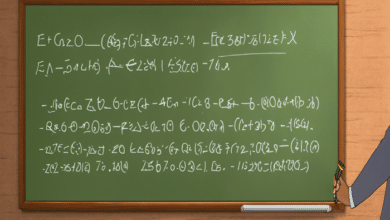99 Math Facts: Unlocking the Wonders of Numbers

Introduction
Mathematics is a field that is as vast as it is fascinating. Whether you’re a student, a teacher, or just a curious mind, there’s always something new to learn. Today, we’re diving into 99 math facts that will leave you amazed and perhaps even inspire you to delve deeper into the world of numbers.
The Magic of Prime Numbers
Prime numbers are numbers greater than 1 that have no divisors other than 1 and themselves. One of the most fascinating 99 math facts is that prime numbers play a crucial role in computer security systems. They are used in encryption algorithms that keep our online data safe.
The Fibonacci Sequence
Among the 99 math facts, the Fibonacci sequence stands out. This sequence, where each number is the sum of the two preceding ones, appears in nature, art, and architecture. From the arrangement of leaves on a stem to the spiral of a seashell, Fibonacci numbers are everywhere.
Zero: The Most Powerful Number
Zero might seem like nothing, but it’s one of the most important numbers in mathematics. As one of the 99 math facts, the concept of zero revolutionized mathematics, enabling the development of algebra, calculus, and modern computing.
The Golden Ratio
The Golden Ratio, approximately 1.618, is another fascinating entry in our list of 99 math facts. This ratio is often found in nature, art, and architecture, creating aesthetically pleasing proportions.
The Enigma of Pi (π)
Pi (π) is one of the most famous mathematical constants, representing the ratio of a circle’s circumference to its diameter. Among the 99 math facts, the fact that Pi is an irrational number, with its decimal representation going on forever without repeating, is particularly intriguing.
The Pythagorean Theorem
One of the 99 math facts that has stood the test of time is the Pythagorean Theorem. This fundamental principle of geometry states that in a right-angled triangle, the square of the hypotenuse is equal to the sum of the squares of the other two sides.
Euler’s Identity
Considered one of the most beautiful equations in mathematics, Euler’s Identity combines five of the most important numbers in mathematics: 0, 1, π, e, and i. Among our 99 math facts, this identity is often cited for its surprising and elegant simplicity.
Pascal’s Triangle
Pascal’s Triangle is a triangular array of numbers with numerous applications in mathematics. One of the most versatile entries in our 99 math facts, it is used in algebra, probability, and combinatorics.
The Concept of Infinity
Infinity is a concept that stretches the limits of our understanding. As one of the 99 math facts, infinity challenges our perception of numbers and has significant implications in calculus and set theory.
The Beauty of Symmetry
Symmetry is a key concept in mathematics, seen in geometry, algebra, and even in nature. Among the 99 math facts, the role of symmetry in understanding the natural world and creating art is truly remarkable.
Conclusion
Math is more than just numbers and equations; it’s a language that describes the universe. These 99 math facts provide a glimpse into the beauty and complexity of mathematics. Whether you’re exploring prime numbers or pondering the infinite, math offers endless opportunities for discovery and wonder.
FAQs
1. What is the importance of prime numbers?
- Prime numbers are crucial in various fields, including cryptography, where they help secure digital information.
2. How is the Fibonacci sequence used in real life?
- The Fibonacci sequence appears in nature, such as in the arrangement of leaves, and in art and architecture to create visually pleasing designs.
3. Why is zero considered a powerful number?
- Zero is fundamental in mathematics, enabling the development of algebra and calculus, and is essential in computing.
4. What makes Pi (π) so special?
- Pi (π) is an irrational number that represents the ratio of a circle’s circumference to its diameter, with its decimal representation continuing infinitely without repeating.
5. What is Euler’s Identity?
- Euler’s Identity is a mathematical equation combining five fundamental numbers: 0, 1, π, e, and i, known for its elegance and simplicity.





